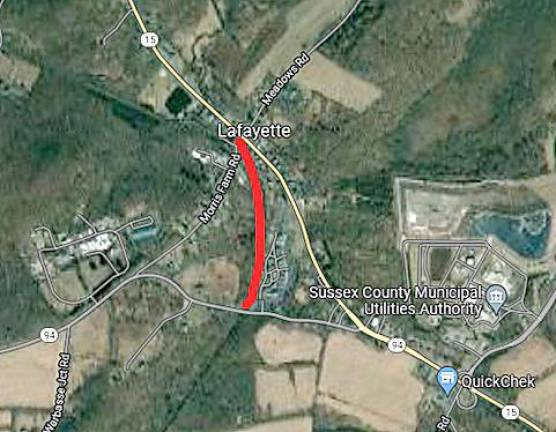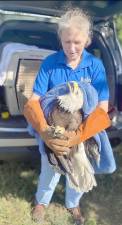100 dead vultures finally prompt Sussex Branch Trail closure
LAFAYETTE. NJDEP declines to clean up carcasses, citing a lack of access and personnel.

As of August 27, the Sussex Branch Trail is closed indefinitely between Route 94 and Morris Farms Road. Earlier this month, trail-goers were confronted with the unsettling sight of dozens of black vultures dead and decomposing along the popular walking and biking route. The 100-plus birds, victims of the H5N1 Avian Influenza, will not be removed by the NJ Department of Environmental Protection, which is monitoring the outbreak alongside the Department of Agriculture.
NJDEP declined to clean up the carcasses, citing rough terrain and a lack of personnel trained to properly handle the birds. They reiterated this in an August 25 press release, which also says that vultures are particularly vulnerable to flu outbreaks as they scavenge the carcasses of their own dead. Still, NJDEP points out that avian flu poses little or no risk to humans. That’s no comfort to local hikers and poultry owners. Comments on NJ States, Parks, & Forests’ August 27 social media post indicate confusion and frustration at the NJDEP’s inaction.
The Lafayette avian flu outbreak is not isolated. In an August 12 statement, the Department of Agriculture detailed a domestic backyard poultry outbreak in nearby Northampton County, Pennsylvania. The department is working with the Pennsylvania Department of Agriculture to prompt flock owners within the 3k, 10k, and 20k “control area radii” to follow all best practices and complete testing before moving any domestic birds to new locales. Currently, poultry and poultry products within the 3km radius (which includes portions of Warren County) may not be exported.
According to the Centers for Disease Control, there are reported outbreaks in 45 states this year, affecting over 2,100 wild birds and 40 million commercial and backyard poultry. In Georgia, the virus killed 700 vultures at an animal sanctuary, and the USDA reports that it’s been detected in commercial and backyard flocks throughout New York, New Jersey, and Pennsylvania. The New York Department of Agriculture announced in March that it would be proactively banning poultry and fowl shows this year.
Safeguarding your flock
While all agencies monitoring the Lafayette vulture die-off insist that avian flu is of minimal risk to humans, they want people to be smart about the virus. Poultry owners should follow biosecurity measures to minimize exposure between domestic and wild birds by removing extra water and feed, avoiding contact with other poultry, frequently disinfecting poultry areas, minimizing farm visitors, and not sharing farm equipment.
Wildlife enthusiasts should also reduce the use of feeders and waterers at this time to discourage large numbers of wild birds from congregating.
The NJDEP and Department of Agriculture strongly discourage anyone from handling dead wild birds. Deceased domestic birds should be promptly removed, double-bagged, and sent for testing. Improper handling can lead to a broader spread of the disease.
The H5N1 Avian Influenza virus is a reportable disease. Symptoms in domestic poultry include a sudden increase in bird deaths; sneezing or gasping for air; nasal discharge; watery or green diarrhea; lack of energy/appetite; drop in egg production or thin-shelled/misshapen eggs; swelling around the eyes, neck, and head; and purple discoloration of the wattles, combs, and legs.
Anyone who suspects an avian flu outbreak in live birds or finds a dead bird should immediately report it to USDA Wildlife Services at 908-735-5654, the NJ Department of Agriculture at 609-671-6400, or email state.veterinarian@ag.nj.gov.

